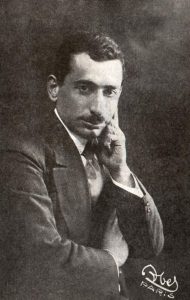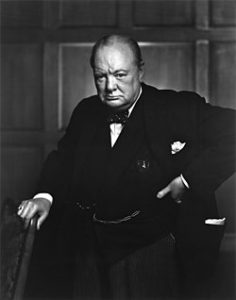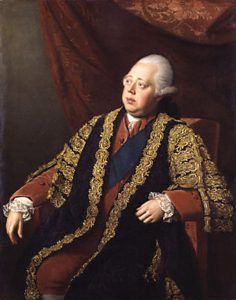History Majors Awarded Prizes At 68th Honors Day Ceremony
By Brendan W. Clark ’21
Editor; History Major
The History Department gave six awards at the 68th annual Honors Day Ceremony on Friday, May 4th, 2018. Honors Day was introduced as part of a revival of “academic pageantry” by the Thirteenth President of the Trinity, George Keith Funston ’32, in 1950. At Honors Day, all undergraduate awards–excluding those disseminated at Commencement–are given out in the Chapel (Trinity College in the Twentieth Century).
Congratulations to all the History Department students recognized for their outstanding undergraduate scholarship!
The History Department’s Senior Thesis Presentations of 2018
By Gillian Reinhard ’20
Contributing Writer; History Major
On Wednesday, May 2, thesis writers from the class of 2018 presented the culmination of their year-long research projects with topics ranging from Russian Communist influence in twentieth-century China to studies of the environment on the New England coast. Each thesis is the result of countless hours of independent study and serves as a significant achievement for a history major.
The first presenter, Elenore Saunders, introduced her thesis titled “The Bluefish, an Unsolved History: Spencer Fullerton Baird’s Window into Southern New England’s Coastal Fisheries.” This project examined the bluefish, a species of fish that has historically been tied to the disease epidemics of indigenous populations in early America. Ms. Saunders also explored the negative stigma placed on the species and historical comparisons of the fish to wolves.
A Conversation with Professor of History, Emeritus, Borden Painter
By Brendan W. Clark ’21
Editor; History Major

Professor Borden W. Painter, Jr. ’58, H’95, is an alumnus of Trinity and a former Professor of History, interim Dean of the Faculty, and twice interim President of Trinity College.
Painter’s time at Trinity as a student included participating in football and swimming as well as majoring in history. Painter characterized the importance of “good, close relationships” with the faculty while at Trinity as a major asset to the college. Painter was also active in the Chapel and felt that, ultimately, Trinity was a “great choice” for his undergraduate studies.
“Killing Order”: Talaat Pasha’s Telegrams and the Armenian Genocide–A Lecture by Professor Taner Akçam

By Brendan W. Clark ’21
Editor; History Major
Taner Akçam is a Professor of History and the Robert Aram, Marianne Kaloosdian, and Stephen and Marian Mugar Chair in Armenian Genocide Studies at Clark University. He was one of the earliest Turkish academics to acknowledge the Ottoman commission of the genocide.
The Armenian Club of Trinity and the History Department welcomed Professor Taner Akçam, Professor of History and the Robert Aram, Marianne Kaloosdian, and Stephen and Marian Mugar Chair in Armenian Genocide Studies at Clark University to Trinity on Monday, March 19th. Professor Akçam spoke on his newest book, Killing Orders: Talat Pasha’s Telegrams and the Armenian Genocide. He discussed the significance of the telegrams and their role in affirming the Ottoman governments involvement in many of the events underscoring the Ottoman Empire’s perpetration of the Armenian Genocide.
Akçam began by addressing the continuing denials of the Turkish government, who deny the occurrence of the Armenian Genocide itself. This argument, argued Akçam, rests on the supposition that there was never an official decision by Ottoman authorities to exterminate Armenians. To augment their claims, Akçam cited the two strategies pursued by the deniers: that they have consistently hidden or destroyed the bulk of documentary evidence and that they continue to deny the existence of certain available documents.
“Great Pleasure and Advantage”: Richard Toye and the Parliamentary Oratory of the Rt. Hon. Sir Winston Churchill
By Brendan W. Clark ’21
Editor; History Major

The Trinity College History Department had the pleasure of receiving a visit from Richard Toye, Professor and Department Head of History at the University of Exeter, on Thursday, February 22. Professor Toye is a historian of Churchill and has a distinguished career, having written a number of publications including Lloyd George and Churchill: Rivals for Greatness, Churchill’s Empire: The World That Made Him and the World He Made, The Roar of the Lion: The Untold Story of Churchill’s World War II Speeches, and Rhetoric: A Very Short Introduction.
In his lecture, Toye challenged us to consider other factors that influenced the decisions of Churchill’s rhetoric. One of the first factors Toye examined was the structure of the House of Commons chamber itself. In 1941, the house was bombed during the Blitz and a fervor developed over whether or not the chamber should be reconstructed. Toye described the importance of the original design to Churchill, noting that Churchill found the American rotunda design “fatal to democracy.” The intimacy of the chamber and its ability to facilitate the conversational style, which Churchill himself advanced, was critical to the Parliamentary tradition within Britain.
The Parliamentary Practice of the “Putting Out of the Wig”
By Brendan W. Clark ’21
Editor; History Major
I wrote this not as an assignment but for publication here after being inspired by the mention of this practice in my Parliamentary Debate class with Professor Jennifer Regan-Lefebvre. What started as a search for an answer became an exhilarating six-hour review through the annals of British parliamentary history.

On the evening prior,[1] the question was posed in a general sitting of History 270: Parliamentary Debate, a course duly held under the tutelage of one Dr. Jennifer Regan-Lefebvre, a professor of British History, inter alia, at Trinity College, as to the ambiguity of the nature of Parliamentary tradition surrounding the “putting out of the wig,” as it is so-called in the Parliamentary tradition.[2] Ergo, it stood within my earnest desires and in keeping with the general station of my inquisitive character to endeavor to establish, through scholarly review and research, the history of this unique practice. It is my hope that the forthcoming may provide an answer to this most perplexing and under-researched historical oddity in Parliament.
Bankwitz Lecture: “From Privy to the Statistical Archive”
Editor; History Major
The annual C.F. Bankwitz Lecture this year featured Barbara Ann Naddeo from the City College of New York presenting “From the Privy to the Statistical Archive: Political Information, Science, and the Formation of the Territorial State in the Age of Enlightenment, 1700—1815.”
Herein, I examine Professor Naddeo’s arguments regarding Galanti’s significance in his time whereas my colleague Ms. Meagher will touch upon Galanti’s role as a source of historical information.
Naddeo’s treatment of the implications and novelty of famed Italian economist and geographer Giuseppe Maria Galanti (1743–1806), who worked in the Kingdom of Naples during the aforementioned period, proved enlightening especially in its espousal of concepts on epistemology.
Bankwitz Lecture: Galanti as a Historical Source
Editor; History Major
On Thursday, November 16, the Trinity College History Department held its Annual Philip C. F. Bankwitz Lecture. This year’s speaker was Professor Barbara Ann Naddeo from the City College of New York who gave a lecture entitled, “From The Privy To The Statistical Archive.” In this lecture, Professor Naddeo cited Giuseppe Maria Galanti in making her argument that statistical writings in late eighteenth century Italy played a large role in the establishment of Italy as a modern political player. Before she made her argument, Professor Naddeo went into depth on the importance of Galanti’s works as a historical source. Giuseppe Maria Galanti was born in 1743 and died in 1806, Having lived his life in the Kingdom of Naples in Italy. During his lifetime he published five volumes of a text called The Geographical and Political Description of the Sicilies. The work includes census-like information about the region at the time as well as detailed maps. The census information translates to political statistics both then and now. The information indicates what the people of the time were like both professionally and socially as well as what the rulers of the time were interested in knowing about their people since it is they who ordered the gathering of many the statistics Galanti uses.
(more…)
Professor Kassow and Who Will Write Our History?
Editor; History Major
Samuel Kassow, the Charles H. Northam Professor of History and a member of the Trinity College History Department since 1972 is presently involved in seeing his book Who Will Write Our History? materialize as a documentary film directed by Robert Grossman and executively produced by Nancy Spielberg. In September of 2017, Adrian Brody signed on to serve as the voice of Ringelblum in the documentary.
(more…)
Lecture Recap: African Americans & Classical Education after the Civil War
By Tess Meagher ’20
Editor; History Major
In coordination with the History Department, the Trinity College Classics department hosted its annual Moore Lecture on November Ninth during common hour. The lecture, entitled “African American Intellectuals and the Study of Ancient Greek After the Civil War,” was given by guest lecturer Michele Valerie Ronnick. The lecture dealt specifically with historical African American scholars, mostly during the era of 1850-1950, who had an impact on the study of classics and/or on the way African Americans were educated in classics during this time period.
Professor Ronnick began the talk with an explanation of the importance of Greek and Latin in nineteenth-century western culture, specifically the American education system. She said that beginning around the same time as the American Revolution, there was a debate as to how useful the prerequisite of Greek and Latin for further education was. Among the founding fathers, there was a group of anti-classicists who said there was no place in the new republic for the study of dead languages. However, this group was in disagreement with other founding fathers who believed in the studies of the classics as necessary. The disagreement wasn’t resolved here and continued to affect the education system until the twentieth century.
(more…)



